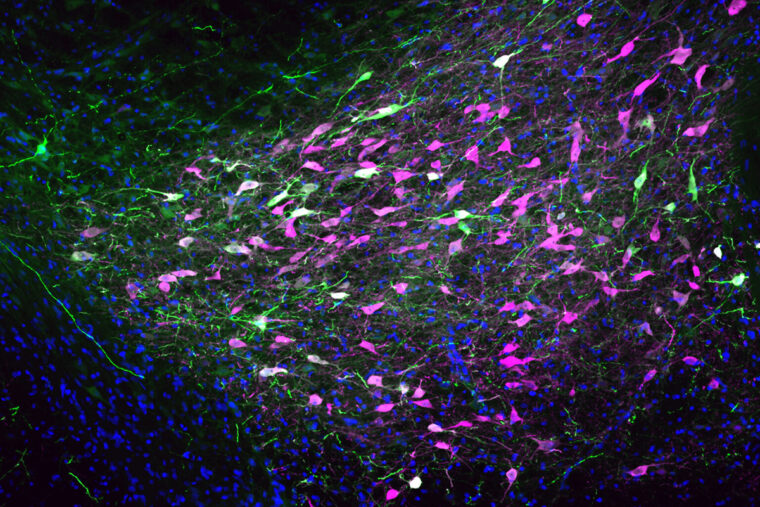The Record
Wednesday, March 12, 2025
Top stories
Foundation AI model uses notes to predict post-surgery risks
An AI for Health Institute team unveils a versatile large-language model that enables early and accurate prediction of complications after surgery to help improve patient safety and outcomes.
Female sex hormone protects against opioid misuse, study finds
According to a new study by WashU Medicine researchers, male and female rats with a chronic pain condition release different amounts of dopamine when given fentanyl because of sex hormones.
WashU Expert on root of rising antisemitism in America
Fighting rising antisemitism in the U.S. will require a dramatic shift in civility and a renewed focus on teaching history and religion, according to Mark Oppenheimer, at the John C. Danforth Center on Religion and Politics.
Events
|
MAR 13 |
OTM Office Hours: therapeutics: idea to drug3 p.m. Thursday, March 13 |
|
MAR 13 |
Thursday Nights at the Museum: St. Louis women and textiles5–8 p.m. Thursday, March 13 |
|
MAR 14 |
314 Day fun run6:30 a.m.–Noon Friday, March 14 |
WashU in the News
Justice Barrett may have the crucial vote in Trump cases
the new york times
Ballooning around Venus
Nautilus
Professor says there’s a shift in power dynamics between workers, executives
KMOX Newsradio
An exhibition at the Kemper features artistic views of environmental balance
St. Louis public radio
Campus and community news
Lawrence E. Thomas, a member of the WashU Board of Trustees and an alumnus, was honored with a lifetime achievement award by the St. Louis American Foundation.
Researchers at WashU Medicine have uncovered why some patients with a rare genetic disorder called primary ciliary dyskinesia have worse lung problems than others with the same disorder.
In memoriam
Floyd Bloom, emeritus trustee, 88
Floyd E. Bloom, MD, an honorary emeritus trustee at Washington University, died Jan. 8. He was 88. A WashU Medicine alumnus, he made groundbreaking contributions to modern neuroscience.






